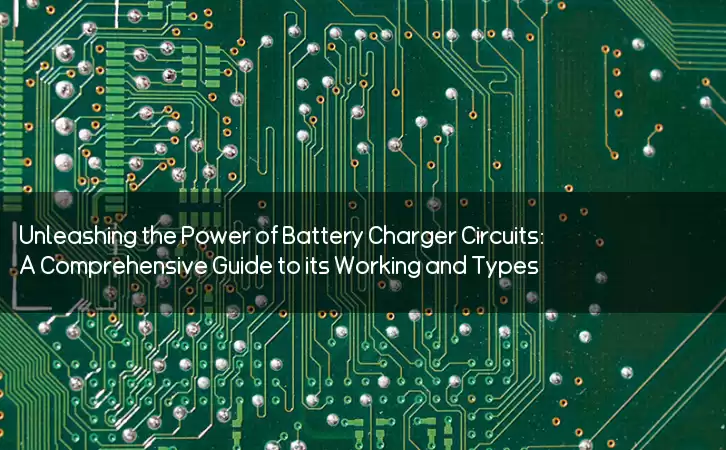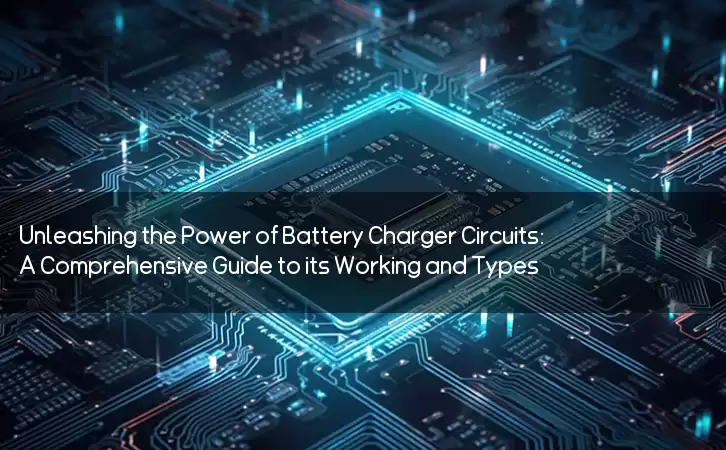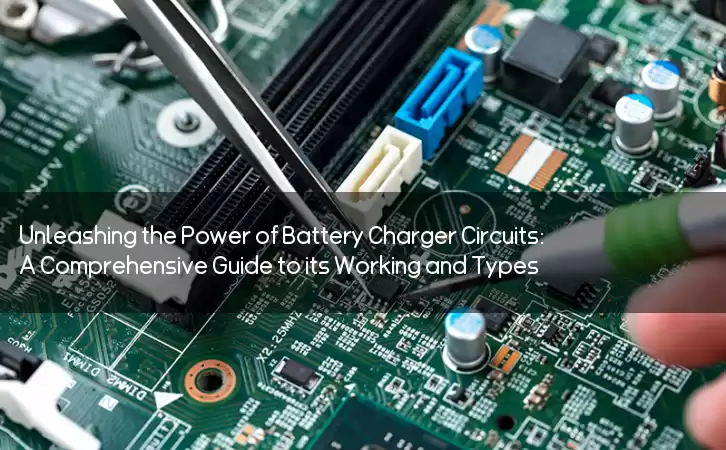Information Center
Unleashing the Power of Battery Charger Circuits: A Comprehensive Guide to its Working and Types
Published:2023-08-15 10:33:26 Author:Green WCND Views:64Battery Charger Circuit: A Guide to its Working and Types

A battery charger circuit is an essential electronic device that helps to recharge batteries. It is a device that converts AC voltage into DC voltage and controls the current flowing through the battery. A battery charger circuit has different types and working principles that determine its efficiency and performance. This article aims to guide you through the working and types of battery chargers.

Working

Before understanding the working of a battery charger circuit, it is essential to know the components that make up the circuit. The primary components of a battery charger circuit include a transformer, rectifier diode, capacitor, and voltage regulator. The transformer is responsible for stepping down the AC voltage to the required DC voltage level. The rectifier diode converts the AC voltage into DC voltage, and the capacitor filters out the ripple that comes out of the rectifier diode. Finally, the voltage regulator helps to control the voltage and current flowing through the battery.
Once you plug the battery charger into an AC supply, the transformer steps down the AC voltage to the required DC voltage level. The rectifier diode then rectifies the DC voltage, and the capacitor filters out the ripple. The output voltage from the capacitor is then regulated by the voltage regulator, which maintains the current and voltage flowing through the battery.
Types
There are different types of battery charger circuits, each with unique advantages and disadvantages. The following are some of the types of battery charger circuits:
1. Linear Battery Charger Circuit: This type of battery charger circuit is the simplest and most common. It works by regulating the voltage and current through the battery manually. It is, however, not very efficient and can cause overheating of the battery.
2. Switch-Mode Battery Charger Circuit: This type of battery charger circuit uses a high-frequency oscillator to regulate the current and voltage flowing through the battery. It is much more efficient than the linear battery charger circuit and does not cause overheating of the battery.
3. PWM Battery Charger Circuit: This type of battery charger circuit uses a pulse-width modulation technique to regulate the voltage and current flowing through the battery. It is highly efficient and can charge the battery faster than other types of battery charger circuits.
4. Solar Battery Charger: This type of battery charger circuit is specifically designed to charge batteries using solar energy. It is environmentally friendly and does not require an AC power supply.
Conclusion
A battery charger circuit is an essential electronic device that helps to recharge batteries. It is important to understand the working and types of battery charger circuits to choose the most suitable one for your needs. The choice of battery charger circuit depends on the type of battery you want to charge, the charging time required, and the efficiency of the charger. While there are different types of battery charger circuits, each with unique advantages and disadvantages, the most important thing is to choose one that is safe and efficient for your battery charging needs.
Power Adapter Design and Customization Guide for Portable Electric KettlesI. Common Design Types for Portable Electric Kettle Power AdaptersPortable electric ke···
I. Common Design Types of Power Adapters External Independent Type (Most Common) Design: A standalone adapter (e.g., "black brick") connected to the p···
Handheld Vacuum Cleaner Power Adapter Selection GuideIntroductionHandheld vacuum cleaners have become a mainstream tool for household cleaning due to their port···
Drill Power Adapter Selection Guide.drill-container { font-family: Arial, sans-serif; line-height: 1.6; max-width: 800px; margin: 0 auto; padding: 20px; } .dril···





